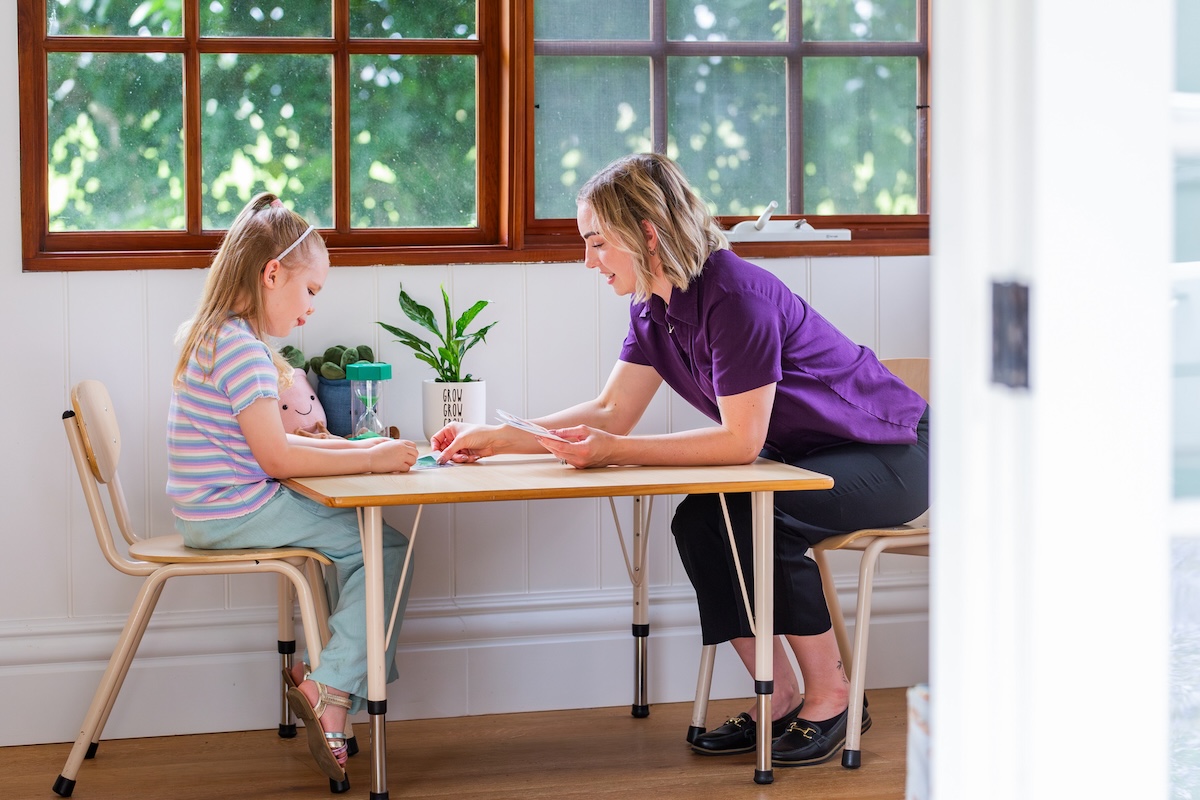Where Do Speech-Language Pathologists Work?
From hospitals and schools to outpatient clinics and private practices, this guide explores where SLPs work, highlighting the unique roles and opportunities in each environment.

Private Practice
In a private practice setting, speech-language pathologists (SLPs) typically work in a more personalized and flexible environment compared to schools, hospitals, or large healthcare systems. This setting may also include outpatient clinics or providing in-home services. Here’s what you can generally expect:
Physical Space:
- Private treatment rooms
- Family-friendly spaces designed for comfort and engagement
- Access to specialized therapy tools and materials
- Option for in-home or teletherapy sessions
Schedule:
- Appointments based on client-SLP availability
- 30–60 minute sessions, often scheduled back-to-back
- Greater control over caseload and daily schedule
Work Style:
- One-on-one or small group therapy
- Opportunities to specialize (e.g., pediatrics, fluency, voice, or adult neuro rehab)
- Close collaboration with families and caregivers
- Small team or independently owned business environment
Schools
A speech-language pathologist (SLP) in a school setting primarily works to support students’ communication skills so they can access and succeed in their education. SLPs address speech, language, social communication, and literacy needs that impact classroom learning and participation. Duties include conducting evaluations, attending Individualized Education Program (IEP) meetings, documentation, providing therapy sessions, consulting with teachers, and communicating with families. Here’s what you can generally expect:
Physical Space:
- Dedicated therapy room or shared space
- Services may also take place in classrooms, libraries, or other school environments
Schedule:
- Follows school calendar and hours (holidays and summers typically off)
- Sessions usually 30 minutes
- Mix of individual and small group therapy sessions
Work Style:
- Collaborate closely with teachers, special education staff, and school teams
- Focus on language development, articulation, fluency, voice, and social skills
- Services delivered in the natural learning environment
- Flexibility needed to adapt to school routines and student schedules
Clinics
In a clinic setting, speech-language pathologists (SLPs) typically provide outpatient care to individuals across the lifespan from young children to older adults. The clinical environment allows for individualized treatment plans, consistent scheduling, and specialized services based on client needs. Duties include evaluations, documentation, therapy sessions, caregiver education, and interdisciplinary collaboration. Here’s what you can generally expect:
Physical Space:
- Private or semi-private therapy rooms
- Access to a wide range of assessment tools and therapy materials
- Welcoming, family-centered environment
Schedule:
- Often includes full-time weekday hours, with some evening or weekend options
- Appointments typically 30–60 minutes
- Set caseload with opportunities for consistent progress tracking
Work Style:
- One-on-one therapy with occasional small groups
- Opportunities to specialize (e.g., pediatric language, feeding, fluency, neuro rehab)
- Collaboration with occupational therapists, physical therapists, or psychologists depending on the clinic
- Strong focus on caregiver involvement and education
Hospitals
In a hospital setting, speech-language pathologists (SLPs) are part of an interdisciplinary medical team, helping patients with communication and swallowing disorders related to illness, injury, or surgery. SLPs in this setting often work with medically complex cases and provide care in fast-paced, acute environments. Duties include conducting evaluations, creating treatment plans, documenting progress, and collaborating with physicians, nurses, and other rehabilitation professionals. Here’s what you can generally expect:
Physical Space:
- Hospital rooms, ICU, rehabilitation units, or outpatient clinics
- Mobile or portable equipment for bedside evaluations
- Access to advanced diagnostic tools (e.g., FEES, videofluoroscopy)
Schedule:
- Full-time weekday shifts, with possible weekend or holiday coverage
- Appointments vary based on patient condition and unit needs
- Short-term, high-need caseloads
Work Style:
- One-on-one treatment focused on speech, language, cognitive-communication, voice, and swallowing
- Frequent interdisciplinary collaboration
- Emphasis on functional outcomes, discharge planning, and patient education
- Ability to work under pressure and adapt to changing patient status

